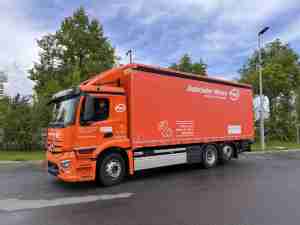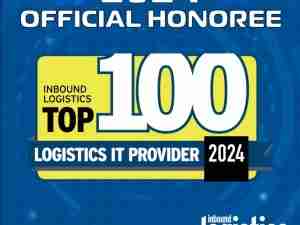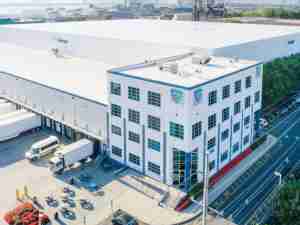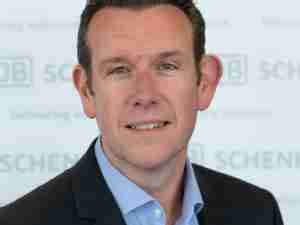Solutions are focused according to vertical with high-tech skewed to service parts distribution and repair/returns, with added value to programs coordinated globally. Healthcare leverages assets for finished goods distribution and returns within facilities designed for regulatory compliance and temperature sensitive needs. Both are concentrated at the Louisville campus to take advantage of a central US location for high-value inventory and adjacency to the UPS Worldport package and airfreight hub for end-of-runway operations. Retail/CPG (consumer packaged goods) finished goods distribution and returns are clustered elsewhere on strategic campuses or distribution centers (DCs) at Hebron, KY; Mira Loma, CA; Harrisburg, PA; Chicago, IL; Dallas/Fort Worth, TX; Reno, NV; Atlanta, GA; Seattle, WA and Northern New Jersey.
Some major customers taking advantage of the contract logistics services on the Louisville campus are Sprint, Nikon, Toshiba, IKON Office Solutions, Philips Healthcare, Abbott Diabetes Care, Dr. Reddy's Laboratories, Corning Life Sciences, and ConvaTec, a unit of Bristol-Myers Squibb.
For Philips Healthcare, UPS executes global supply chain management from its DCs in Louisville, Singapore and the Netherlands. This distribution and service parts solution manages product flow to stocking locations and returns from field technicians. UPS has expanded both inbound/outbound global transportation services and has integrated the Philips global enterprise resource planning (ERP) platform and UPS logistics management systems to provide global visibility of parts from order entry through customer delivery and returns management for post-sales service.
For Sprint, UPS has set up 500,000 sq. ft. of fulfillment space in a new Louisville facility as collaboration and business activity have grown consistently over the last three years. After its purchase of Nextel, Sprint brought in Richard Motilal, an experienced logistician to resolve supply chain problems. He quickly got oriented and worked with his team to develop a request for proposal (RFP) to address the vision of efficient fulfillment and reverse logistics operations. UPS won the expanded business and has reduced the number of DCs from 19 to three. Sprint has achieved greater flexibility, a customized solution, a well executed and constantly improving supply chain plan plus cost savings. In addition, UPS covers volume peaks and valleys well. Motilal notes that it is important for partnerships to be formed and recommends that third-party logistics provider (3PL) users not try to "micromanage".
The expanded Sprint operation includes a highly automated UPS fulfillment system utilizing four pick modules which are three layers high and over 200 feet long. Capacity is available to handle 65,000 orders a day. UPS also handles Sprint's return business including Level 1-3 repairs.
For IKON, UPS runs a piece-pick and order consolidation operation. It has brought together 19 previous distribution locations into one. Orders are received for field technicians and shipped to UPS Store locations for pickup. The UPS redesigned parts supply chain has lowered IKON's transportation costs over 70% for ground transportation and 51% for air transportation. Orders received before 6 P.M. are shipped for next day delivery.
Toshiba also leverages The UPS Store network for a program to offer customers next day and two-day service via UPS for laptop repairs and warranty service. Within the multi-client warehouse, UPS operates a DC for parts to service technicians and authorized service locations as well as a retail channel returns program and call center. The laptop repair operation for Toshiba is emblematic of UPS engineering, having created L-shaped stations where each technician can run diagnostics and repair up to four laptops, all within a constant temperature environment. Electronic Static Discharge flooring and wrist straps are utilized to keep the operation









